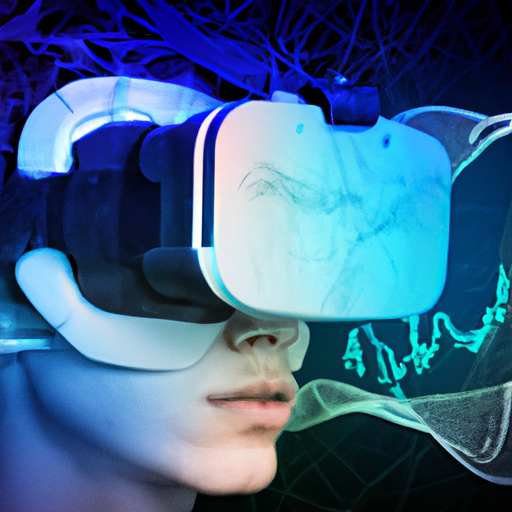The Evolution of Virtual Reality (VR) in the Entertainment Industry
Introduction
Virtual Reality (VR) has dramatically changed the landscape of entertainment over the years. It has transformed the way we consume and interact with various forms of entertainment, whether video games, films, music festivals, or amusement park rides. Although it may seem like a relatively recent phenomenon, the roots of VR stretch back many years. This fascinating journey warrants a deep exploration.
The Origins of Virtual Reality
The first concept of VR was introduced in the 1950s, aiming to immerse users in a virtual world. However, it was only in 1968 that the first VR head-mounted display, aptly named The Sword of Damocles due to its intimidating appearance, was produced. The primitive VR systems were not immediately adopted in the entertainment sector, but they laid the groundwork for future development.
Early Development and Reception
The first significant entry of VR into the entertainment industry occurred in the late 1980s and 1990s, where VR arcade games began to appear. These games presented the novel idea of immersing players in the game universe. However, the crude graphics, limited interaction, and high cost made them a novelty rather than a revolution. While initial responses were mixed due to the limitations, they sparked interest and innovation surrounding the technology.
Evolution and Integration of VR into Entertainment
Over the subsequent decades, VR technologies remarkably evolved, becoming more mainstream in the entertainment landscape. With the advent of lightweight, affordable headsets and powerful VR software, VR became a viable method of entertainment. This evolution saw the integration of VR into almost all forms of entertainment, from gaming and storytelling to experiences and filmmaking.
Modern VR and Its Usage in Entertainment
Today, VR has entirely reshaped the entertainment industry. VR video games are no longer novelties but mainstream hits. Companies such as Oculus Rift, HTC Vive, and PlayStation VR have pushed the boundaries of immersive gaming, coupling cutting-edge visuals with interaction.
Movie makers have also started to utilize VR to provide impressive experiences that traditional mediums do not offer. Filmmakers are exploring VR's potential to inject audience directly into the narrative, building empathy with characters in a way that traditional cinema cannot attain.
Impact and Revolution of VR in Entertainment Sector
As an innovative technology, VR has undeniably revolutionized the entertainment sector. It has widened the avenues for storytelling and gaming, enabling audiences to partake in an interactive and immersive experience. Thus, it has transformed spectators into participants, creating a whole new level of engagement.
The Future of VR in Entertainment
The future of VR in the entertainment industry is incredibly promising. With continuous advancements in technology, VR experiences are set to become even more immersive and realistic. However, challenges such as motion sickness and high costs need to be overcome to increase adoption.
Experts envisions the future of VR in entertainment as a pivotal tool for storytelling and experiences. This technology is considered to be the future of education, training, exploration, and perhaps even social interaction. While there is still much to learn and discover about this fascinating technology, it's clear that VR will continue to play a critical role in shaping the future of the entertainment industry.



















Comments
Leave a Comment